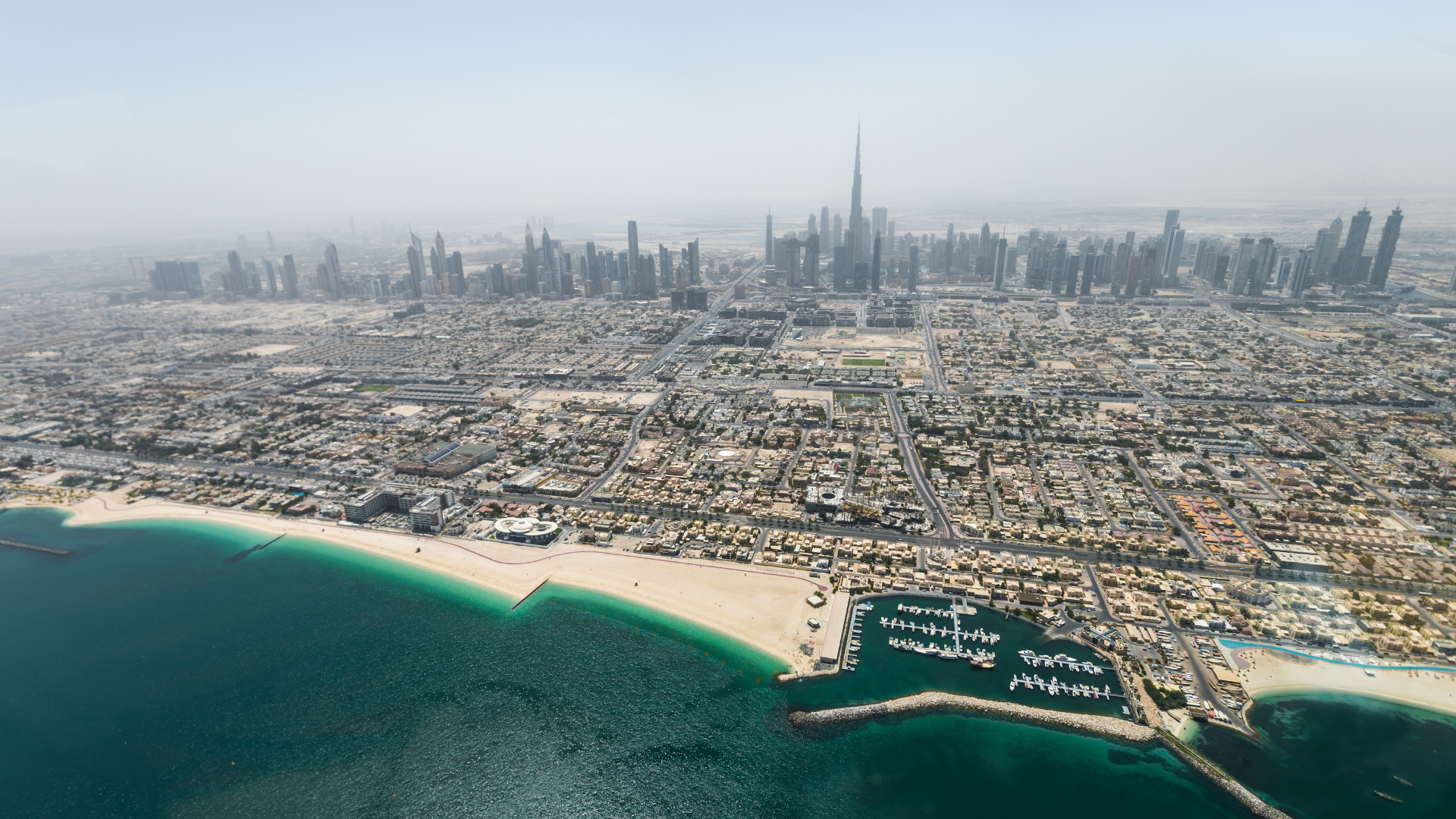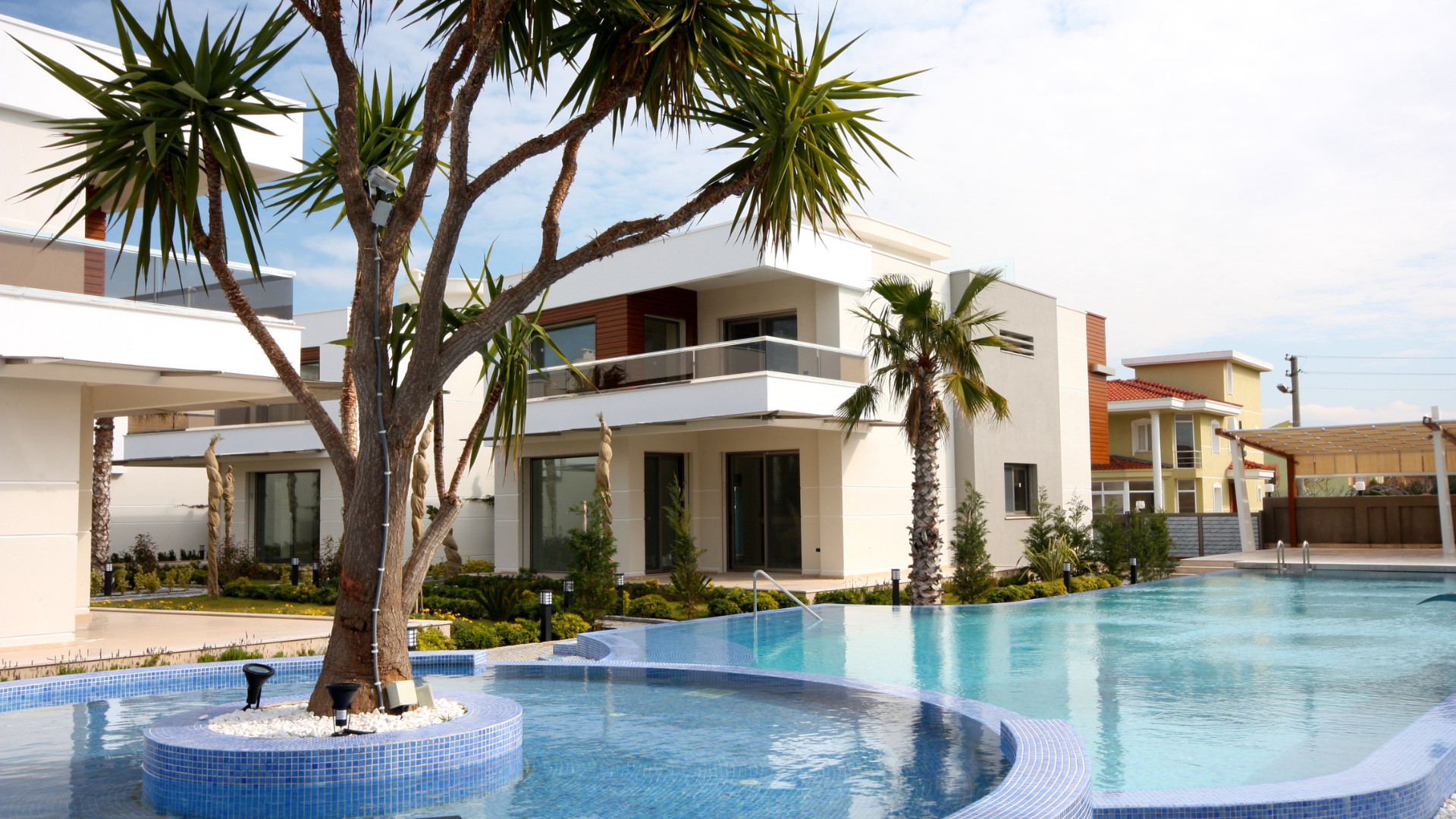How to Choose the Right Property for Renovation or Partial Redevelopment in Dubai
How to Choose the Right Villa for Redevelopment in Dubai – Maximize ROI with a Smart Strategy. Discover how DCI Group identifies the best villas in Dubai for strategic renovation. Learn the key criteria, risks to avoid, and how to calculate ROI before you invest.
Introduction to Strategic Redevelopment in Dubai
In Dubai’s competitive real estate market, not all investment opportunities are created equal. While some investors chase off-plan projects or buy luxury villas at a premium, others are discovering a smarter, more strategic path: property redevelopment.
This approach involves identifying undervalued or underutilized villas and transforming them into modern, high-performing assets — without building from scratch. It’s faster, more efficient, and often far more profitable.
But success starts not with construction, but with selection. Choosing the right property for developer-style renovation is the difference between outstanding ROI and costly missteps.
The DCI Group Approach to Property Selection
At DCI Group, we’ve analyzed and assessed hundreds of villas across Dubai. Our process is driven by both market intelligence and architectural foresight. We look beyond surface aesthetics and focus on the real levers of value:
- Land potential
- Structural flexibility
- Buyer demand
- Lifestyle enhancements
- Exit value
Our method is rooted in redevelopment thinking — seeing a property not as it is, but as it could be.
Key Criteria for Selecting Villas With Redevelopment Potential
Let’s break down the top five factors we evaluate when choosing a villa for redevelopment.
1. Location Matters: Land Value & Market Demand
In Dubai, location remains one of the most important factors in property selection. Villas show the greatest potential for value growth when located in well-established residential areas with strong demand and limited new supply.
We look for properties in locations where:
- Land value is stable or showing upward trends
- Buyer and tenant demand is consistently high
- Existing villas often feature outdated layouts but sit on spacious plots
These conditions allow for the creation of modern and competitive assets without the need to acquire new land for construction from scratch.
2. Floor Plan Flexibility: The Hidden Potential
An outdated layout isn’t a flaw — it’s an opportunity. Many older villas in Dubai suffer from:
- Disconnected kitchen and living areas
- Long hallways
- Too many small, enclosed rooms
But with smart structural redesign, these layouts can be transformed into open, functional, and luxurious living spaces.
What we assess:
- Can non-load-bearing walls be moved?
- Is the core structure sound?
- Can we add a home office, larger kitchen, or extra bedroom?
If the answer is yes, the villa has developer-style renovation potential.
3. Plot Potential: Room to Add Value
One of the most overlooked advantages of older villas in Dubai is the size and underutilized layout of the plot. A generous plot offers a blank canvas for strategic improvements that directly boost market appeal and resale value.
Key value-add opportunities include:
- Installing a modern swimming pool
- Adding covered parking or carports
- Creating outdoor entertainment areas such as BBQ lounges or pergolas
- Redesigning landscaping and garden zones
In Dubai’s luxury market, outdoor living is a premium feature. A thoughtfully planned garden and social space can significantly influence a buyer’s perception — and willingness to pay a higher price.
4. Market Gap Analysis: Profit Before You Build
The most successful redevelopment projects begin with a clear equation:
“We buy at X, invest Y, and exit at Z.”
At DCI Group, we use a structured approach to assess the market gap between acquisition cost and potential sale value. This involves:
- Studying recent transactions of renovated villas in the same community
- Comparing features, finishes, and build quality
- Adjusting for location-specific premiums
The larger the market gap — and the more control you have over the transformation — the stronger the projected ROI.
This isn’t guesswork — it’s math.
5. What to Avoid
Not every property is worth the effort — and some carry hidden risks that may not be visible at first glance.
We avoid villas with:
- Legal disputes or unclear ownership
- Major structural issues that make renovation cost-prohibitive
- Poor access, limited privacy, or permanently obstructed views
- Unrealistic sellers with inflated land price expectations
Identifying red flags early protects your budget, your timeline, and your long-term investment goals.

Why Due Diligence Is the First Step to a Successful Renovation
Before investing in real estate — especially in a project involving renovation or partial redevelopment — it’s crucial not to rely solely on visual impressions. At DCI Group, we believe that the success of a project begins not with construction, but with analysis.
We conduct a comprehensive pre-purchase due diligence, which helps us:
- Reduce investment risk
- Understand the true potential of the property
- Build a realistic return-on-investment (ROI) model
Standard Due Diligence Process Includes:
1. Legal Review
- Verifying ownership and clean title
- Checking for liens, mortgages, debts, or legal disputes
- Ensuring the property is free of legal risks
2. Technical and Structural Inspection
- Evaluating the condition of the foundation, roof, and load-bearing structures
- Identifying hidden issues — moisture, deformation, or outdated systems
- Assessing whether the structure is suitable for safe renovation
3. Layout and Design Potential
- Assessing whether walls can be moved or reconfigured
- Analyzing potential for extensions: pool, terraces, outdoor areas
- Aligning possibilities with modern buyer expectations and lifestyle standards
4. Zoning and Regulatory Compliance
- Ensuring compliance with local zoning and building regulations
- Verifying the ability to obtain necessary NOCs and community approvals
- Identifying restrictions from master developers or authorities
5. Financial ROI Modeling
- Estimating investment vs. potential resale value
- Benchmarking with comparable renovated properties
- Building realistic ROI projections based on renovation quality and market data
This level of analysis allows us to eliminate high-risk properties, plan with confidence, and focus on opportunities with maximum growth potential.
At DCI Group, we never make an offer without full due diligence — because smart renovation starts long before construction begins.
How We Evaluate Villas: The DCI Group Approach
Once a property passes legal and technical inspection, we move into the analytical and strategic phase. At DCI Group, we view every villa not just as real estate — but as a potential investment product that must be competitive and market-ready at exit.
Evaluation System Includes:
• Market and Location Analysis
We study the area’s potential for rental or resale, and identify which types of properties are in highest demand.
• Architectural Assessment
We evaluate the structure and layout flexibility to determine the scope of possible transformations.
• Concept Strategy and Design
We don’t just create a look — we develop a holistic concept that elevates value through modern interiors, layout optimization, and lifestyle-driven elements.
• Financial Modeling
We build a detailed model of the budget, timeline, target exit price, and projected ROI.
• Risk Assessment
We evaluate legal, technical, and market risks — from permit delays to changing buyer preferences.
🧭 This multi-step process allows us to work with precision, not by template — and to create highly liquid, market-ready assets that meet Dubai’s evolving standards.
This allows us to go beyond standard templates and adapt to each property — in order to create an asset with maximum liquidity at the time of market launch.

Renovation and ROI: Why Choosing the Right Property Matters
Renovation isn’t just about construction — it’s about investment strategy, where every number plays a crucial role. At DCI Group, we believe that your future return is determined at the very beginning — at the moment you choose the property.
Why does it matter? Because the right villa:
- Has a market gap between purchase price and post-renovation potential
- Allows for a timely project delivery with a controlled budget
- Simplifies the approval process and speeds up market readiness
- Attracts premium buyers or tenants seeking ready-to-move-in homes
The ROI Equation:
“Buy at X, invest Y, and exit at Z.”
If the gap between X and Z is wide enough — and Y is well-calculated — it creates a realistic opportunity for an ROI of 40% or more.
It’s important to remember: even a flawless renovation won’t save the wrong asset. Only a well-considered choice from the outset can turn a property into a high-return investment.
⚠️ Disclaimer: ROI figures mentioned are estimates and not guarantees of future performance. All investments carry market, legal, and financial risks.
Common Mistakes Investors Make When Selecting a Property
Even experienced investors can make costly missteps when evaluating villas for renovation or redevelopment. At DCI Group, we’ve reviewed hundreds of properties and seen these patterns emerge repeatedly.
1. Focusing on Aesthetics Instead of Structure
A freshly painted villa might look appealing — but without solid structural integrity, it’s a risky investment. Always inspect the foundation, roof, and core systems before making a decision.
2. Ignoring Zoning and Regulatory Limits
Some investors assume they can make any changes they want. In reality, zoning laws, NOCs, and developer regulations can significantly restrict what you’re allowed to modify.
3. Underestimating Renovation Costs
Renovation budgets are often too optimistic. Hidden costs — such as structural reinforcement, outdated wiring, or plumbing issues — can quickly erode ROI if not accounted for in advance.
4. Choosing Based on Price Alone
A “cheap” villa isn’t always a deal. If it’s in a low-demand area, has poor layout potential, or lacks outdoor space, its resale value might remain limited — even after upgrades.
5. Overlooking Market Trends
Buying a property without aligning with current buyer preferences — such as open layouts, smart features, and outdoor living — can result in missed opportunities for added value.
Questions to Ask Before Committing to a Villa
Before making an offer on a villa for renovation or redevelopment, it’s essential to ask the right questions. These help uncover hidden risks and ensure the property aligns with your investment goals.
1. Is the legal title clean and transferable?
Always verify ownership, registration, and whether there are any encumbrances, liens, or disputes.
2. What structural issues exist, if any?
Request a technical report on the foundation, roofing, and core systems — and budget for any necessary upgrades.
3. Can the floor plan be reconfigured easily?
Ask if the structure supports internal changes like combining rooms, opening spaces, or adding new features.
4. What are the community and zoning regulations?
Check whether the villa complies with building codes, and whether you’ll need approvals from developers or municipalities.
5. What’s the resale potential post-renovation?
Study comparable renovated villas in the area. What price range can you realistically target?
6. Are there restrictions on adding features (like pools, terraces, or extensions)?
Some communities or developers have limitations on size, placement, and aesthetics.
7. Is this property in an area with high buyer or tenant demand?
Location is still key. A well-renovated villa in the wrong location might struggle to sell or lease.
Final Thoughts: Strategy First, Renovation Second
When it comes to real estate transformation, success doesn’t start with materials or design — it starts with clarity, planning, and precision.
At DCI Group, we approach every villa as a potential investment product, not just a building. The goal is to create something that’s not only beautiful — but financially sound, strategically positioned, and aligned with real market demand.
Before any renovation begins:
- Know your numbers
- Understand your buyer
- Choose the right property
Only then should you bring in the design team, contractors, and architects. Without a clear investment strategy, even the best renovation may fall short of its potential.
In Dubai’s competitive and fast-moving real estate market, the winners are those who start smart — and renovate with purpose.
FAQs About Property Selection for Redevelopment in Dubai
1. Is every villa in Dubai suitable for redevelopment?
No. Key factors include location, structural condition, zoning flexibility, and market demand. Not all villas meet these criteria.
2. How can I estimate ROI before buying a villa?
Start by comparing similar renovated villas in the area, adjusting for finishes, layout, and features. Then model the purchase price, renovation costs, and realistic resale value.
3. Can I renovate a villa in a gated community?
Yes, but approvals may be required from the master developer, homeowner association, and Dubai Municipality. Always check regulations beforehand.
4. Is it better to buy an older villa or a newer one for redevelopment?
Older villas on large plots often offer more room for upgrades and repositioning. But each case should be assessed individually.
5. What hidden risks should I watch out for?
Legal disputes, unclear ownership, outdated infrastructure, and zoning restrictions are common risks. Proper due diligence helps avoid surprises.
6. Do I need an architect for every renovation?
Yes — especially for structural changes. A good architect will help align the design with both code and market expectations.
7. Can I add a swimming pool or second floor to an existing villa?
Often yes, but it depends on zoning, community rules, and structural feasibility.
8. How long does it take to fully renovate a villa in Dubai?
Typically 6 to 12 months, depending on scope, approvals, and contractor efficiency.
Ready to Find the Right Villa for Renovation?
At DCI Group, we specialize in helping investors and homeowners identify high-potential villas for strategic renovation or redevelopment. Whether you’re seeking your next personal residence or a profitable resale opportunity, our expert team will guide you through every step — from selection to execution.
Let’s unlock the value of Dubai’s villa market together.
- Contact us today via WhatsApp: +971 52 559 80 89
- Explore our completed projects: DCI Ready Projects
- Looking for investment opportunities? Visit: Ready Investment Projects
⚠️ Disclaimer: The information provided in this article is for general informational purposes only and does not constitute financial, legal, or investment advice. Any figures related to ROI or potential gains are estimates based on market trends and should not be interpreted as guaranteed results. All real estate investments involve financial, regulatory, and market risks. Please consult a qualified advisor before making any investment decisions.





